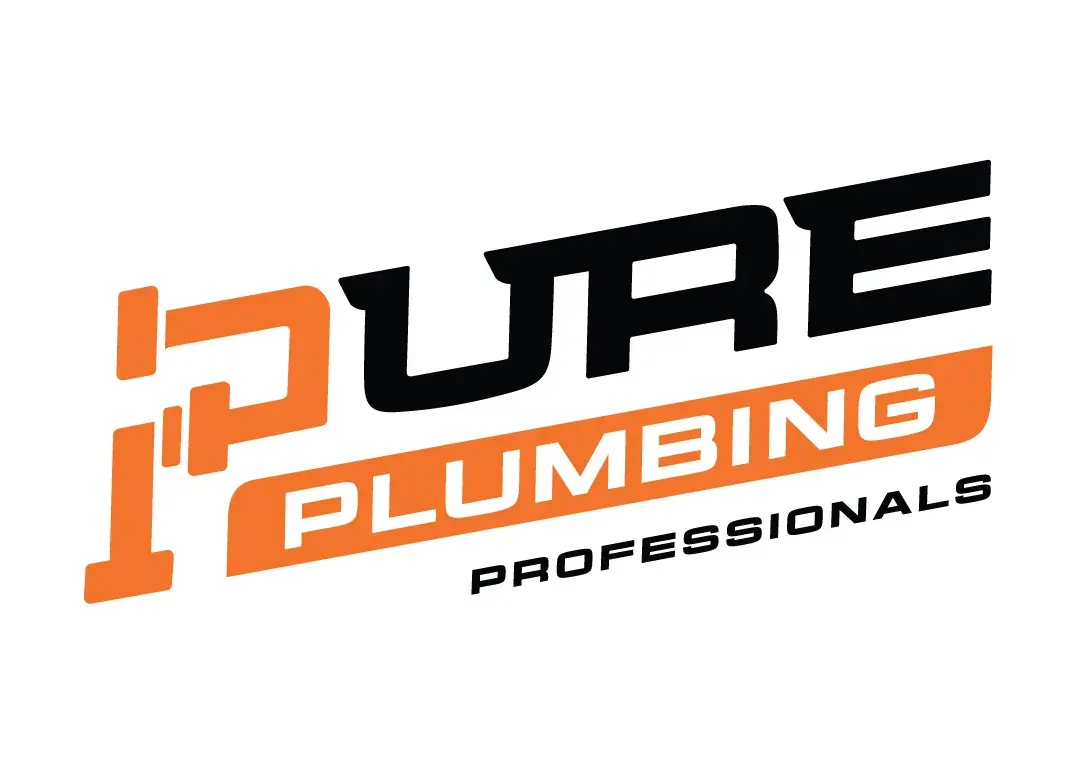Pros and cons of the different types of hot water systems
Which type of hot water system is right for you?
It used to be standard practice that when you needed a new hot water system you looked for the biggest storage tank system you could find and got the plumber to whack it in just outside the laundry door. Running out of hot water was not something Aussie households could contemplate. For a relatively warm country, we are unusually obsessed with having steaming hot water available at the flick of a tap, 24/7. It was expensive but it was just the way it had to be to avoid running out. However, we've learnt a lot about energy efficiency in the last 20 years with modern hot water systems using significantly less power to achieve the same, or better, results than the old energy-hungry storage models.

The choices in hot water systems also have increased in recent years, what used to be an option between gas or electric storage styles has now expanded to solar, instant, heat pump as well as much more energy efficient storage options. On the plus side, we have so many more options and can cater for our homes specific requirements. Unfortunately, this can also complicate matters as it makes the decisions around which system to buy and install a little bit more involved.
Deciding which style of hot water system is right for your home and your families needs can involve a bit of research but the hard work will definitely pay off in the long run.
We've put together some advantages and disadvantages across both storage and instant style options to help you make an informed decision when installing a new unit, upgrading or replacing your old hot water heater.
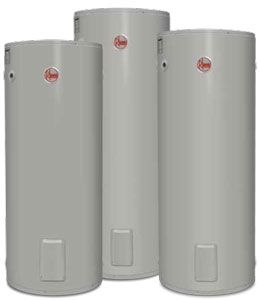
Electric storage hot water
Since 2010 Australia has been phasing out older style energy-hungry electric storage hot water systems to make way for more environmentally friendly options and reduce greenhouse gas emissions. Hot water system manufacturers have stepped up to the plate and created a range of energy efficient electric water heater options.
Storage tank systems have also been integrated with solar collector panels and solar evacuated tube systems or heat pump technology to utilise renewable energy sources, further reducing fossil fuel generated power consumption.
Off-peak or economy tariff connections offer even more cost reductions for homes limited to electric storage hot water system options.
NEED SOME HOT WATER HELP?
click here to contact an actual plumber
Pros of electric storage hot water
- fairly cheap to buy and install
- offers an easy upgrade or replacement if you already have an old storage electric or gas system
- many systems can be connected to off-peak electricity tariffs for lower running costs
- flexible installation - indoor or outdoor options
- larger units can easily supply hot water to multiple outlets at the same time - meaning you can run the hot tap in the kitchen without losing hot water to the shower.
- larger models can also cater for large homes with up to 6 people from the one unit
- Provides mains pressure
- Compact models perfect for limited hot water applications such as small apartments or office kitchens.
Cons
- electric storage can be the most expensive option to run especially if on a continuous (anytime) tariff
- storage tanks can take up a lot of space in a small backyard
- tank constantly needs heat to keep stored water above 60°C in order to prevent the growth of dangerous bacteria such as Legionella bacteria
- maintenance includes replacing the sacrificial anode every few years (frequency will depend on the water quality in your area)
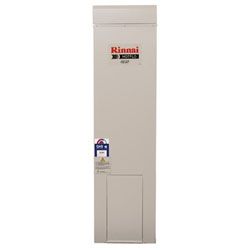
Gas storage hot water
As with electric storage units gas storage hot water systems have become much more energy efficient in recent years with 3, 4 and 5 star options available.
Most gas hot water heaters offer natural gas and LPG options. The natural gas network is available to much of Sydney allowing residents an easily accessible gas supply for a gas storage hot water system.
(Find out if your Sydney home can get natural gas here - gonaturalgas.com.au)
Pros of gas storage hot water heaters
- Energy efficient options available
- Faster heat recovery than electric storage
- Indoor and outdoor models for flexible installation
- Fewer greenhouse gas emissions than electric options
Cons
- Using LPG can increase operating costs
- Homes without a current natural gas connection will need to factor connection costs into installation budget
- Require venting if installed indoors
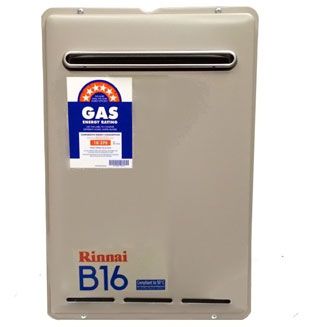
Instant or continuous flow
This style of hot water heater is referred to as a variety of names such as instant, instantaneous, continuous flow, tankless, or on-demand. Their compact design means you can install instant units almost anywhere.
Pros of instant hot water systems
- never run out of hot water again
- only heat the water as it's needed reducing running costs
- energy efficient - very little power is wasted while heating the water
- indoor or outdoor models available
- no need to heat water above 50°C saving costs
- no power used/wasted keeping the water hot in the tank
- compact size - fits almost anywhere from a large house to a small apartment
- both electric and gas models available - however, gas-powered style is much more common
- both natural gas and LPG options available
- typically last around twice as long as the storage style (about 20 years)
Cons
- often more expensive to purchase and install than a standard storage system
- larger units could be required to supply more than one tap at a time
- multiple units could be needed to supply a large home with many bathrooms plus a kitchen and laundry needing hot water at once.
- the instant hot water system ideally needs to be placed near the hot water outlet
- gas units require venting
- minimum flow rates are needed to activate the heat exchanger making them not ideal for areas with low water pressure or homes using low-flow showerheads or tapware.
- delays - it can often take a few seconds for the hot water to reach the tap
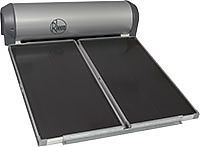
Solar hot water
Solar hot water heaters harness free power from the sun providing a very low operating cost.
Older systems relied on a sturdy roof structure as the tank was coupled with the panels on the roof, however, modern options also include split system models which heat the water using roof-mounted panels but store the water in a tank fitting on the ground.
Pros of solar hot water
- Reduce your homes energy costs significantly
- Possibly eligible for government STC rebates - reducing purchasing costs
- Could be eligible for other green energy rebates
- Close coupled models can be located out of the way on the roof
- Both gas or electric boosted models available.
- Gas boosted models for extra energy efficiency
Cons
- Can be costly to purchase and install
- Not ideal for homes with shaded rooves
- Reduced effectiveness if trees grow or tall buildings shade your home in the future
- Not suitable for homes with minimal or no roof space
- Constant overcast weather can reduce the efficiency
- Outdoor installation only
 What size hot water system do I need?
What size hot water system do I need?